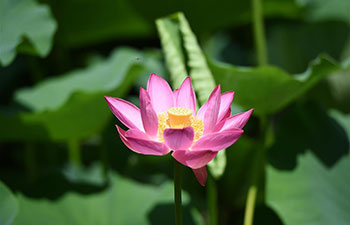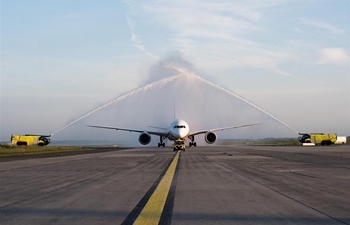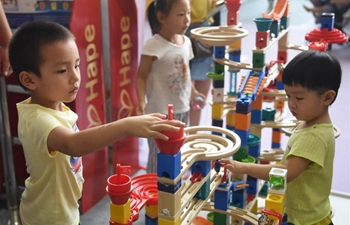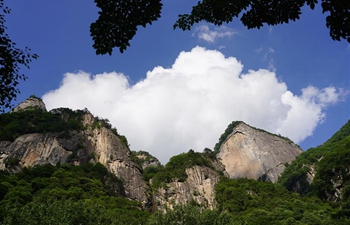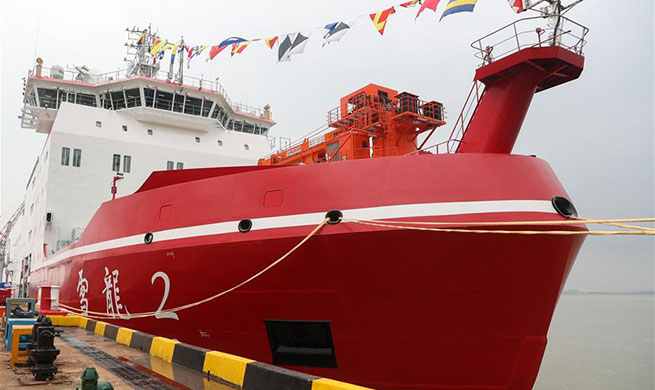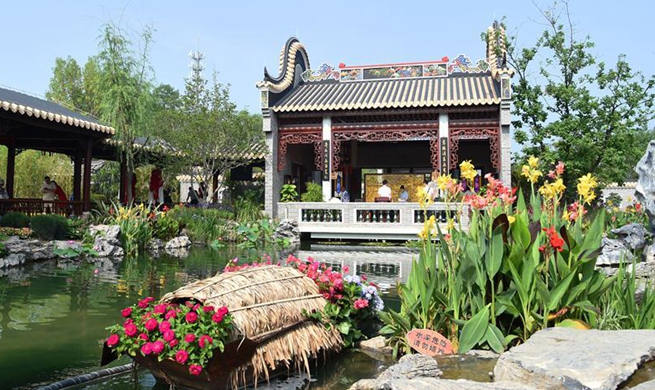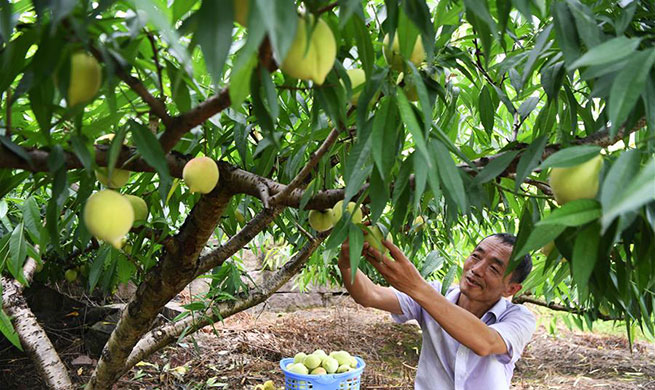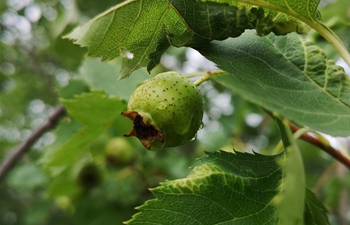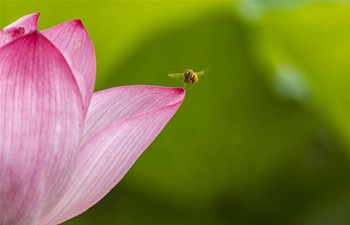By sportswriter Wang Qin'ou
LHASA, July 11 (Xinhua) -- As the 2019 Belt and Road Lhasa International Climbing Master Tournament concluded on Thursday, the Chinese athletes pocketed three out of the four gold medals on offer, while climbers from many other countries had their taste of Lhasa from the highest venue of the series.
During the preliminaries and finals of bouldering, Japan's Keita Watabe and Yuji Fujiwaki reigned the men's final. Except for route 1, they finished the rest three with one attempt only, claiming both gold and silver for Japan.
Pema Yukdron, the local favorite, won the women's final of bouldering thanks to her splendid performance on route 2. With powerful swing from the starting hold, she cleared a difficult section where several climbers fell, and made it to the top without any trouble.
"The routes this time are relatively simple, but you need to have a clear mind before going up," said Yukdron, whose views were echoed by other competitors.
Qu Haibin, a member of the Chinese climbing team, said any minor error could cause failure in the final of male's lead on 10th. Qu's national teammate Ma Zida edged out other three climbers who all reached the top with the fastest speed.
"Since many people succeed in climbing up to the top, you have to be fast. If you were fast, you could have difficulty in catching your breath at this extreme altitude," said Qu.
With an altitude of 3,650 meters above sea level, Lhasa proved to be bitter-sweet for those limit chasers. Oxygen bottles became necessities for climbers like Dmitrii Fakirianvo from Russia, and Watabe still suffered headache even after he grabbed the championship.
"Observation and planning are vital parts of the climbing before getting onto the wall, but on the plateau sometimes you just can't stay focused," Qu pointed out.
Taking the altitude into consideration, route setters lowered the difficulty grade in Lhasa. The organizers set up a medical area, where players could take in oxygen as needed, with an ambulance standing by during the competition.
"The elevation is somewhat troublesome, but challenging environment is always exhilarating for us climbers," said Polish climber Aleksandra Karolina Przybysz, adding that the capital city of Tibet Autonomous Region also fascinated her. She spent nearly all the time outside the venue in temples with her Tibetan friends.
"I like Lhasa. I visited the Potala Palace. There is so much culture and so many natural wonders to see. I've enjoyed it a lot," said Christian Medina from Ecuador.
The 2019 Belt and Road Climbing Tournament has four stops from Ningbo, Zhejiang to Lhasa, followed by Delingha and Wangxian Mount. Started in 2018, the tournament has been inviting athletes from countries along the Belt and Road route, aiming to promote sports and cultural communication through the sport.




